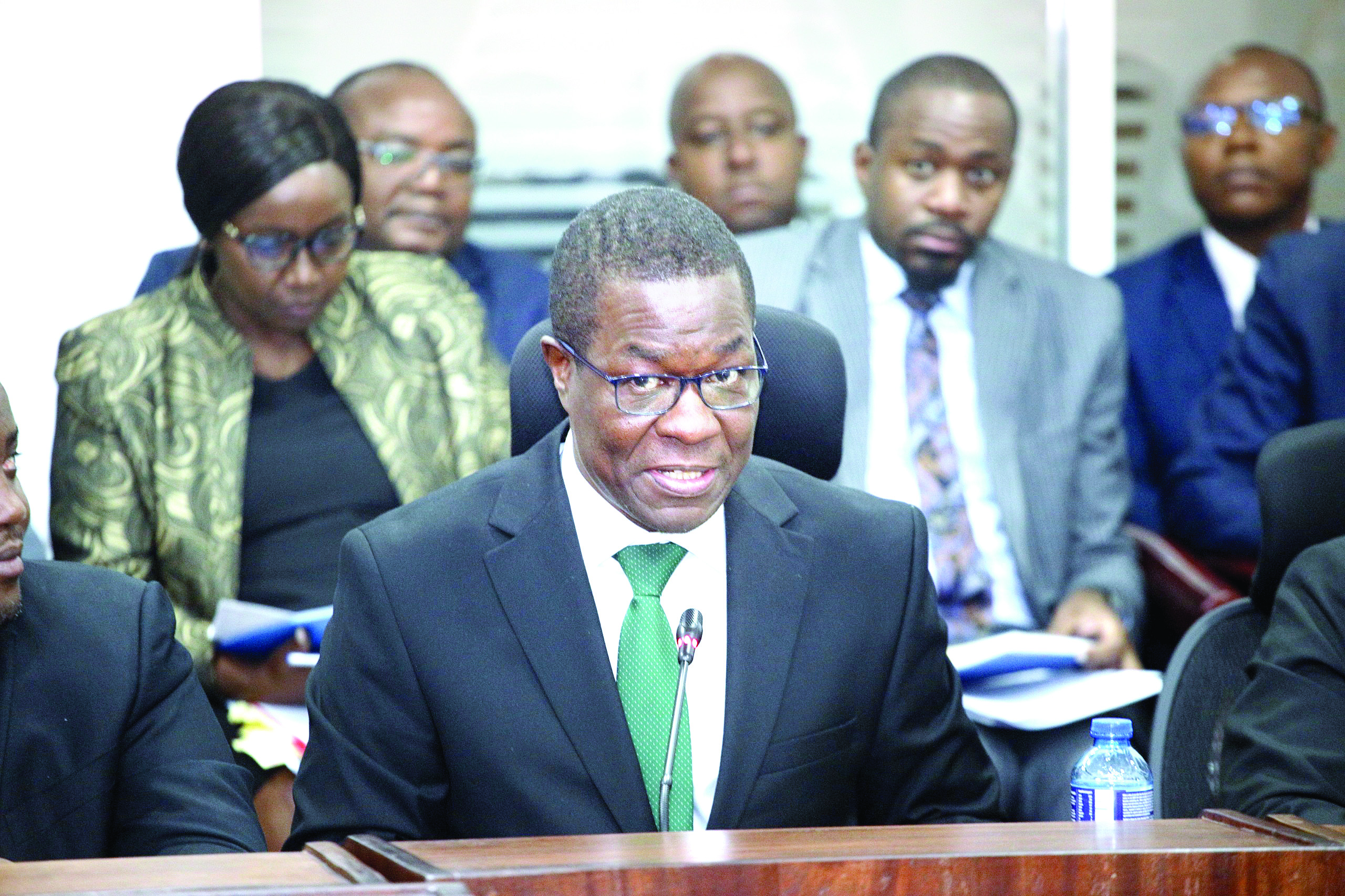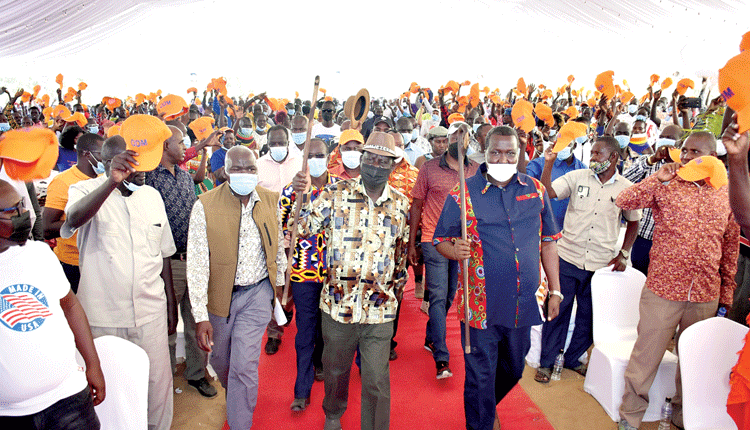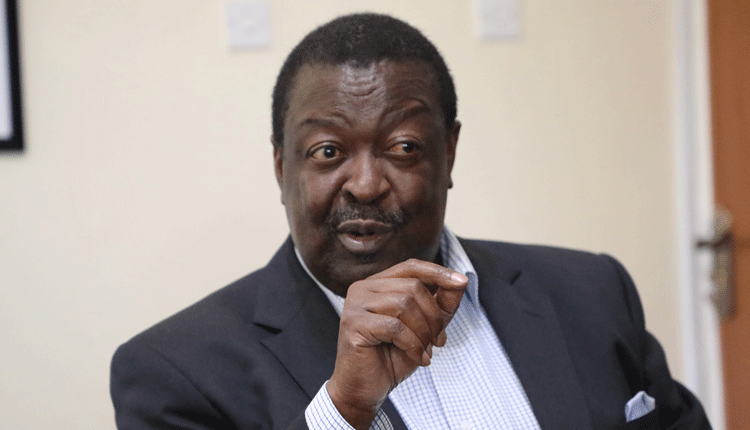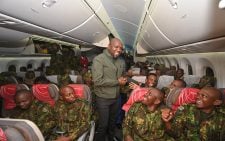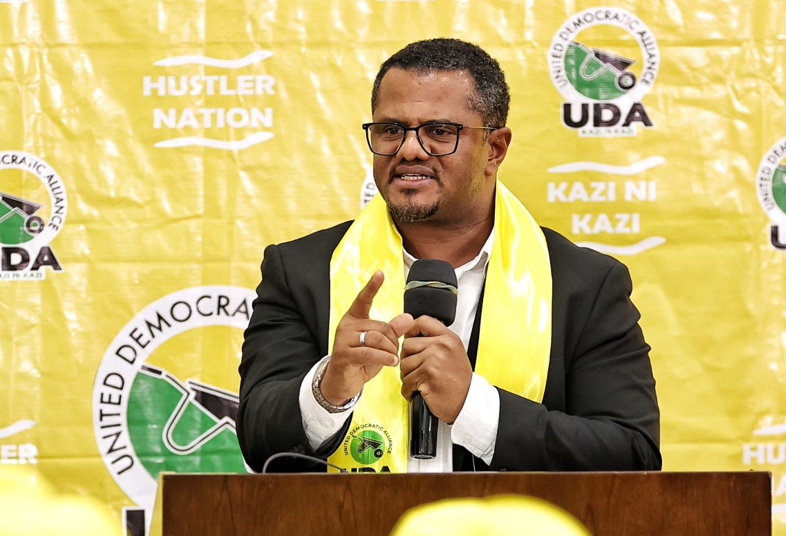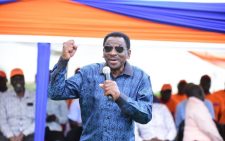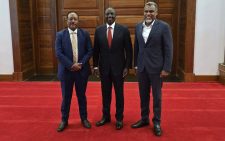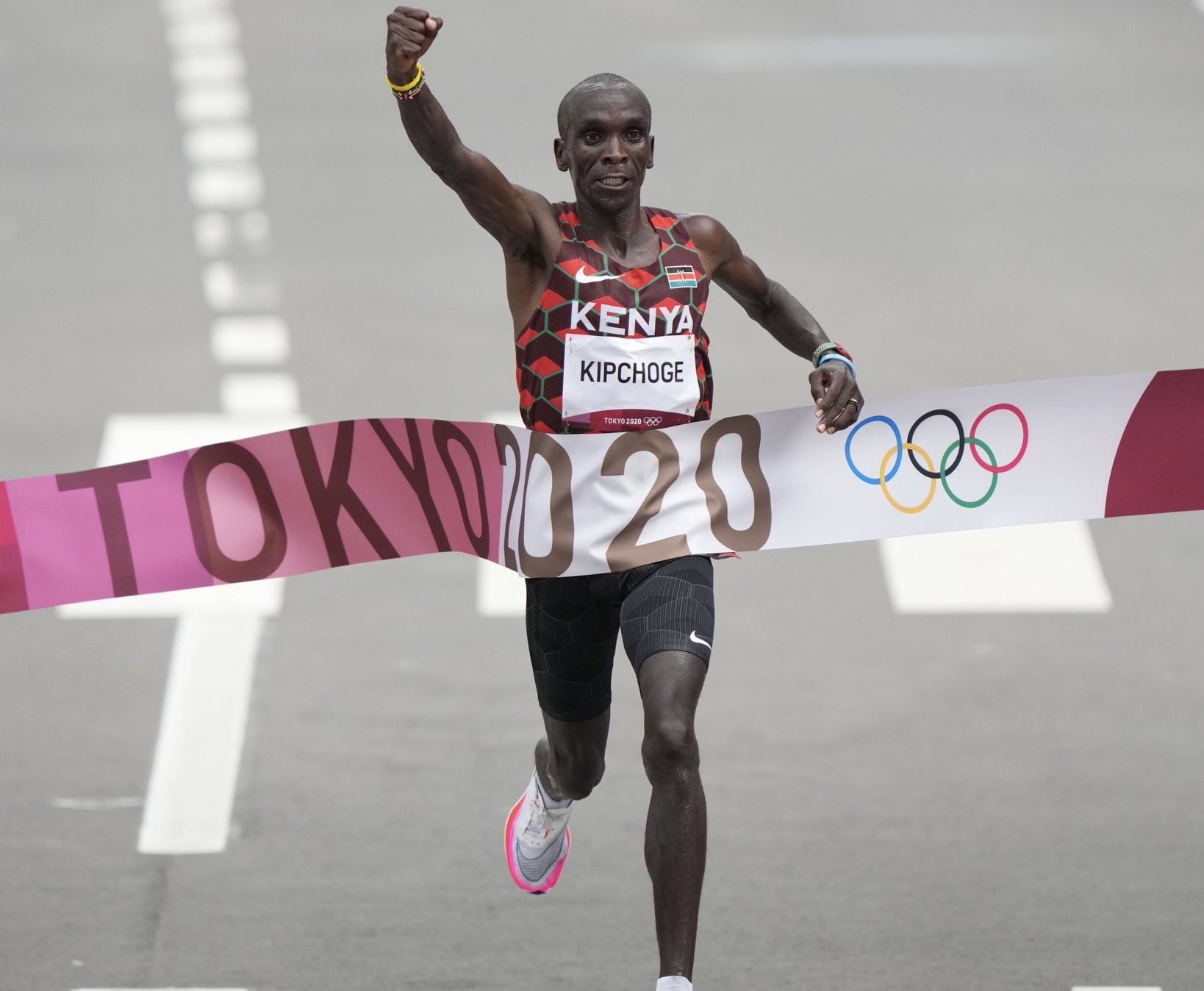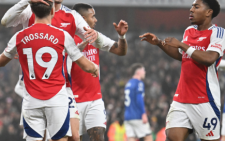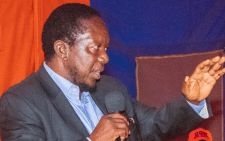Uhuru’s courage to juggle sudden major decisions
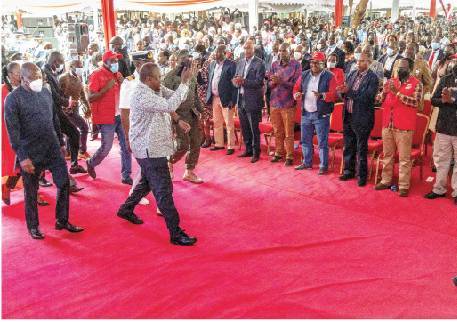
Jeremiah Kiplang’at
President Uhuru Kenyatta is not known to shy away from key political moments. As the country waits to see how he manages his succession, the Head of State on Wednesday indicated he will not be a by-stander.
While hosting Sagana III in Nyeri county on Wednesday, the President gave a firm endorsement of Opposition leader Raila Odinga, demonstrating his readiness to chart a path not many in his league would normally take but, which he has indicated he will not shy away from.
It is a trait he has displayed in the last two decades that has seen him make decisions that go against tradition, some extremely unexpected.
That included folding his ambitions as an Opposition leader to support an incumbent President in 2007 and now finding comfort in yet another Opposition leader he wants to succeed him.
The streak for taking decisions that go against the grain can be traced to 2002 when he accepted late President Moi’s endorsement to take over from him despite a huge political wave against the move.
A year before, Moi had nominated him to Parliament before he elevated him to the Cabinet as Minister for Local Government.
When Moi picked him as his preferred successor, Uhuru agreed to fly Kanu’s flag despite the independence party’s dwindling fortunes ahead of the 2002 elections.
It was to be an unsuccessful attempt, as he lost to retired President Mwai Kibaki, who was the face of a wave of pro-democracy movement, named National Rainbow Coalition, that also had the late Kijana Wamalwa (who became Vice-President), Raila, Charity Ngilu, Kalonzo Musyoka, George Saitoti and others who became senior ministers in the Narc administration.
After the loss, Uhuru became the opposition leader and tried as much to fit into the role with the support of other Kanu lieutenants including William Ruto and Gideon Moi.
In 2005, he went against the grain as he joined hands with the Orange movement, led by Raila that opposed the enactment of a new Constitution through a referendum held that year.
The Orange team won after the proposed Constitution was rejected. The movement was to give birth to the Orange Democratic Movement although Uhuru bolted out soon enough to back Kibaki in the 2007 elections.
That decision caught friend and foe unawares as he had been battered by Kibaki’s administration left, right and centre as he tried to oversight the Narc administration.
He was reported to have banked on Kibaki’s re-election to help steady Kanu as it struggled to find its way after losing power five years before.
Formidable team
However, critics accused him of weakening the party after throwing its weight behind Kibaki, who was facing a battle-hardened Raila that had the backing of a formidable team that also had Ruto.
The decision to back Kibaki triggered a power tussle with the late Nicholas Biwott for the control of Kanu but Uhuru showcased his grit as he fought off the latter’s spirited attempts to snatch the outfit from him. However, they ended up splitting with Biwott, who later formed the National Vision Party.
Uhuru’s gamble paid off as he was appointed Deputy Prime Minister by Kibaki in the Grand Coalition Government brokered after the post- election chaos in 2007. Raila became Prime Minister.
“Going by the history of decisions that President Uhuru has made since 2007, it is clear that he is not afraid to make tough and unpopular political decisions if he believes they are the right ones to take.
Though pundits believe the President is gambling with the choice of Raila against his deputy, history proves the major political decisions he has taken in his political career have always paid off.
There is growing consensus that the Sagana meeting could potentially pay off to his political interests,” said Dr Franklin Kaburu, a political analyst and strategist.
In 2012, when the country was entering the homestretch for the elections set for March the following year, Uhuru teamed up with Ruto in yet another unexpected political moment that had not been seriously considered when both were hauled to the International Criminal Court to face charges linked to the crimes committed after the 2007 post-election violence.
The charges were later dropped.
However, with the cases hanging heavily over them ahead of the 2013 elections, it was reported that State mandarins who were keen on influencing who was to replace Kibaki, were brokering a deal to force him and Ruto to back Musalia Mudavadi who was seen as untainted because he did not have any ICC baggage.
Evil forces
Months to the polls, however, the President declared that he was going to vie for the presidency, accusing some evil forces of trying to mislead him. It paid off once again as he won the polls together with Ruto, who became his deputy.
In March 2018, he shook hands with long-time nemesis Raila, who he had branded a madman before the last elections yet again catching friend and foe unawares.
This decision, as those he made previously, has attracted a load of criticism with none other than his deputy Ruto, who is the main subject of today’s Sagana meeting, leading the calls against the President’s endorsement of Raila.
“He (Uhuru) is taking a political risk to support Raila as an alternative to his deputy, who he has cast in the past as the enemy of the people of Mt Kenya region while Ruto was the good one who, in his own words, deserved to succeed him after bowing out of power in 2022,” Kaburu, also the Secretary General of the Party for Peace and Democracy said.
Better alternative
He added: “How effectively he will be able to project Raila as a better alternative to the people of the mountain will determine whether the gamble pays off or not.”
Ruto recently said Uhuru had picked Raila because he could easily manipulate him once he leaves office.
“Is he able to lead this country with loads of challenges like youth unemployment? We know those who are supporting his candidature are not doing so because they believe in his leadership (and, they think he is too old to lead and will be easier to manipulate but we will not allow that,” said Ruto.
National Assembly Speaker Justin Muturi, the Democratic Party leader, also criticedUhuru’s “bad manners.” “Show me anywhere in the world in a functional democracy where a sitting government decides to join forces with Opposition to form another government…these are the political bad manners that I am talking about. We must stand for something and not just the pursuit of power,” Muturi said.
